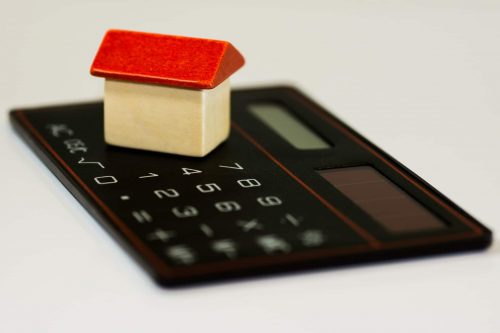Although buying and selling land can be a very flexible investment strategy and a great source of passive income, being a property owner requires performing due diligence and other crucial obligations. Considering high risks and future income growth, is buying land a good investment? Let our expert investors answer your queries and guide your real estate investing journey through this post.
Important Factors to Consider In Land Investing
Accessibility of the Land
While buying land remains one of the most solid investment methods out there, there’s no denying that the accessibility of the property still determines how it will generate income and make your personal finance grow.

There are many ways to find land properties with good locations. One of the easiest key strategies you can consider is browsing through online industry websites. However, before proceeding to buy land and build a diverse investment portfolio, it’s important to know what kind of businesses surround your real estate purchase, along with its typical asking prices.
To make your real estate investing journey worthwhile, our professional team highly advises you to purchase land close to an up-and-coming area. Most real estate investors purchase a piece of land in places with immediate development plans because this is an excellent indication that the market value will potentially increase over time.
Value of the Land in the Future
Building wealth through land investments is among the major perks of having a passive income from real estate properties. Whether you’re eyeing an undeveloped land or a commercialized real estate property, you can expect an increase in market value as long as you carefully differentiate your investment goals and limitations.

Making money through your land purchase varies in different ways, depending on how you intend to use it. For example, raw land investments could bring long-term profits through a buy-and-hold strategy.
Through this method, land investors may buy a piece of land at a reasonable sale price and hold on to it until the real estate value goes up in the market. You have the option of leasing, selling, or developing land property upon reaching the intended profit appraisal.
On the other hand, fruitful real estate investments could also root from purchasing vacant land at a low price and selling it after value appreciation. Unlike the buy-and-hold technique, the sole intention of flipping land is to sell the raw land at a higher price within a much shorter period.
Despite being a flexible real estate investment option, finding undeveloped land can be quite a challenge. Some agricultural land could be on sale due to undesirable conditions like weak structures or contaminants. The best course of action you could take to secure your investment is to seek professional advice.
Another way to raise the worth of your property in the future is by developing the owned estates. Among many facets of real estate investing, generating income could not only give you consistent cash flow but also elevate the value appraisal of your land.

However, it’s crucial to mention that this land investment method is a long-term commitment. If you’re not keen on spending money on developments and waiting several years before actual profits, expert investors like us wouldn’t recommend it.
Last but not least, you can opt to lease your real estate property for a fixed monthly price. Although we don’t recommend avoiding property taxes, this investment technique could help lessen your financial obligations like interest costs and other expenses.
Zoning
As you may already know, investing in land properties also involves abiding by local government policies. So if you want to buy land hassle-free, it’s worth checking the local zoning laws within the area of interest.
Take your time to research if there are existing laws surrounding public access to the estate you’re planning to buy. Keep yourself updated on the owner’s rights, as well as the ingress and egress rights.
Carefully evaluating the zoning perspective and environment of the property could also determine how the area will develop throughout the period of your investment. After all, even one slight change could diminish the value of the estate.

If you have time, our team suggests dropping by the town hall or other agencies in charge of urban planning. It’s easier to collect information that way when you’re still in the process of prospecting different vicinities.
Going through this process allows investors to weigh the future demands in the area and determine if they can get their money’s worth.
Maintenance Costs
Investing in land is more than buying or selling. To gain the most out of your real estate investment, maintaining the condition of your personal property is a must. Although raw land could incur low maintenance compared to commercialized estates, you’ll need staffing to safeguard the area from squatters in case you’re not able to check on it yourself constantly.
On the other hand, investing in land with built property has more upkeep costs than the prior mentioned. If assets like furniture, equipment, and fixtures are included in the sale, make sure to do a thorough quality check every now and then to avoid future complications that could add to future expenses.
Taxes
When it comes to land investment, we can’t exclude the chance to talk about tax implications. If you’re a new investor, take your time to study these state obligations before proceeding to purchase any kind of property.

Inability to pay correct taxes could lead to legal disputes and cause great damage to both your real estate and financial reputation. On top of that, every state differs in terms of these taxation policies.
To cite an example, the Canada Revenue Agency has the jurisdiction to tax your profit as business income should you decide to renovate your property and sell it at a higher price.
Occurrences like these could be handled accordingly by professional tax experts, so we suggest hiring one to avoid conflicts. If possible, get an advisor who knows their way around the law of the state where your property is located.
Return of Investment
The overall financial security lies in the land’s return on investment [1]. So whether you’re buying vacant land properties or commercial real estate, our team would like to emphasize that these investment options don’t shield you out of financial implications.

However, if you had done your part in researching the zoning strategies and development within the area, the chances of a high return on investments are very likely. The key to successful real estate ventures is keeping an eye on the changing variables.
Other Expenses
If you’re buying a land property without a property built on its surface, the only expenses you’ll need to worry about are the taxes and security of the area. In contrast, real estate properties have several necessities to be taken care of, such as water, electricity, septic, and other kinds of utilities to maintain the property.
Monthly dues could impact your finances, so it’s wise to consider which method will work best in your current situation. For example, if you need a steady cash flow, leasing your property for monthly income is a great jumpstart to earn for the time being and increase future profit.
Risks Attached
With all factors laid down on the table, is buying land a good investment? The short answer is still yes, but with risks attached to each land ownership perks. As a landowner, it’s essential that you’re aware of the pitfalls you may encounter while trading within this industry.
Part of the risks you need to endure is that buying land or any real estate property could imply long-term illiquidity. One slight change in the market and the economy, the rate of property appreciation could change over time.

There will be instances where sales volume in the market is low. This particular scenario could lead to a longer span of time for your property to be sold than how you intend it to be.
The small tax breaks are no help either, especially if you’re buying a land property through cash payment. Typically, investors who purchase through mortgage are granted by the state government with interest deductions.
Owning a land also means that you have additional state obligations. But, again if, the laws surrounding the area of your property will indicate the policies you’ll need to follow.
Aside from the taxes, there will be requirements like permits and building approvals before you could start to develop the estate you purchase. Take note that this process may take some time, depending on the specific procedures of the state office.
(Have an ample amount of money in your bank? Then, you can check out what your 1M can buy in Canada here)
FAQ
Is land a good investment?
Yes, land is a good investment. Whether you intend to purchase vacant land or develop an estate to lease or build a business, you’ll get more than your money’s worth with proper investing strategies and adequate research. In addition, the process of land buying and selling could generate steady income, massive profits, and high returns with the right approach.
Conclusion
Now that you’re aware of the pros and cons of this business venture, ask yourself, is buying land a good investment considering your current financial condition? If the answer is yes, then we advise thoroughly reviewing the pointers we noted in this post and gearing up your strategies ahead of time.
To know more about real estate and condo ownership, you can visit these pages too:






